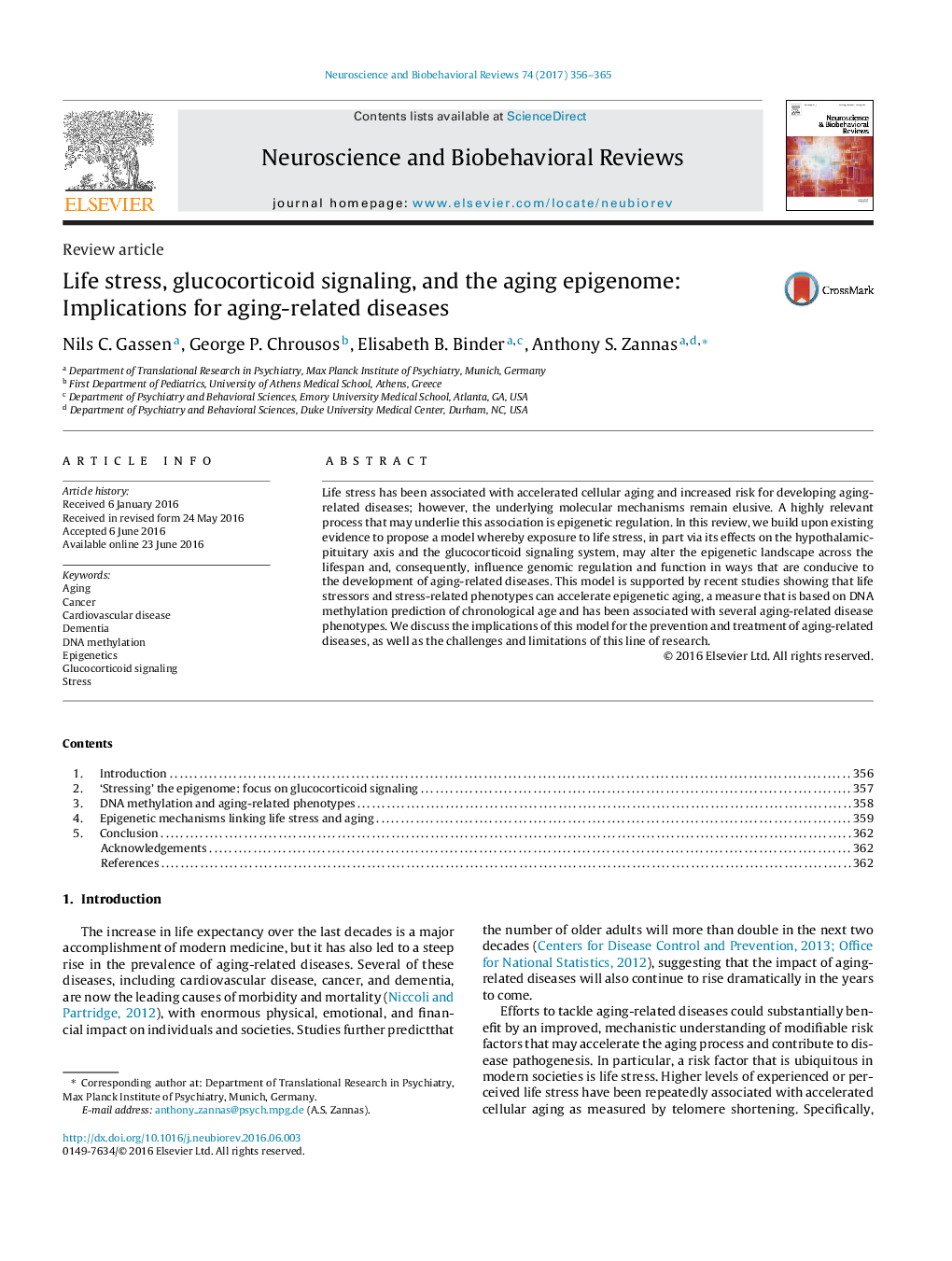| کد مقاله | کد نشریه | سال انتشار | مقاله انگلیسی | نسخه تمام متن |
|---|---|---|---|---|
| 5043624 | 1370587 | 2017 | 10 صفحه PDF | دانلود رایگان |
- Epigenetic mechanisms may contribute to the known link between life stress and aging-related phenotypes.
- Glucocorticoid signaling may mediate the molecular effects of life stress on the aging epigenome.
- The proposed model could have implications for the prevention and treatment of aging-related diseases.
Life stress has been associated with accelerated cellular aging and increased risk for developing aging-related diseases; however, the underlying molecular mechanisms remain elusive. A highly relevant process that may underlie this association is epigenetic regulation. In this review, we build upon existing evidence to propose a model whereby exposure to life stress, in part via its effects on the hypothalamic-pituitary axis and the glucocorticoid signaling system, may alter the epigenetic landscape across the lifespan and, consequently, influence genomic regulation and function in ways that are conducive to the development of aging-related diseases. This model is supported by recent studies showing that life stressors and stress-related phenotypes can accelerate epigenetic aging, a measure that is based on DNA methylation prediction of chronological age and has been associated with several aging-related disease phenotypes. We discuss the implications of this model for the prevention and treatment of aging-related diseases, as well as the challenges and limitations of this line of research.
Journal: Neuroscience & Biobehavioral Reviews - Volume 74, Part B, March 2017, Pages 356-365
